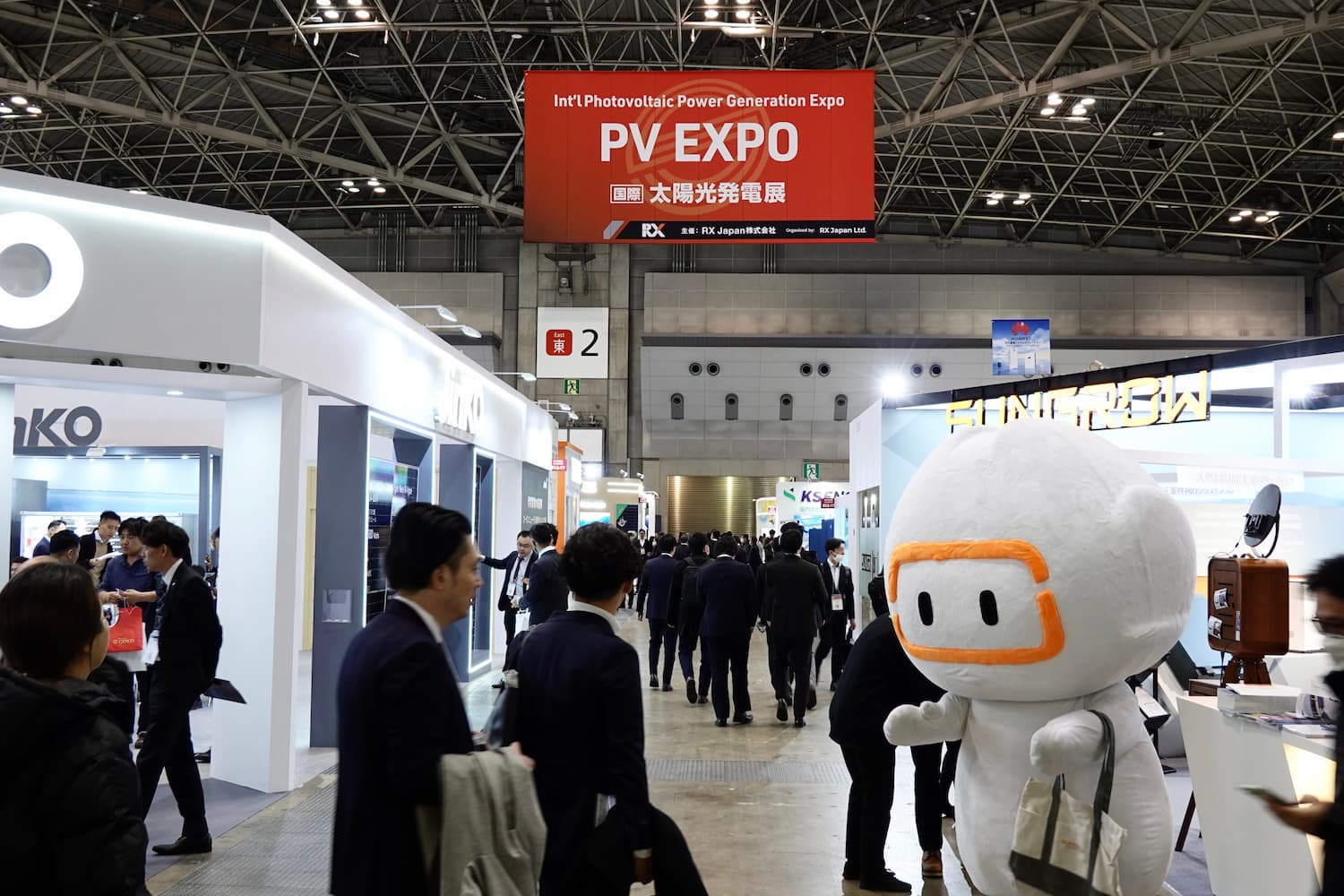
Japan's World Smart Energy Week expects to attract a record number of over 70,000 participants. (Photo: Hsu Tsu-lin)
Japan's World Smart Energy Week (WSEW) returned to Tokyo from Feb. 28 to March 1, featuring hydrogen, fuel cells, solar, wind, smart grids, carbon neutral, and the circular economy and gathered more than 1,600 exhibitors from 29 countries and regions this year.
Exhibitors include leading Japanese companies such as JERA, Honda, and Sharp, with a record attendance of over 70,000 visitors expected this year, according to the organizer RX Japan.
Honda unveils hydrogen-powered SUV; JERA supports power plant transition with AI
Honda introduced its first hydrogen fuel cell electric SUV, CR-V e:FCEV, which boasts a range of over 600 kilometers on a full tank of hydrogen fuel, according to Honda's chief engineer Asao Uenodai.
The new model will be available for pre-order tomorrow and will go on sale this summer at an estimated price tag of 8.1 million yen.
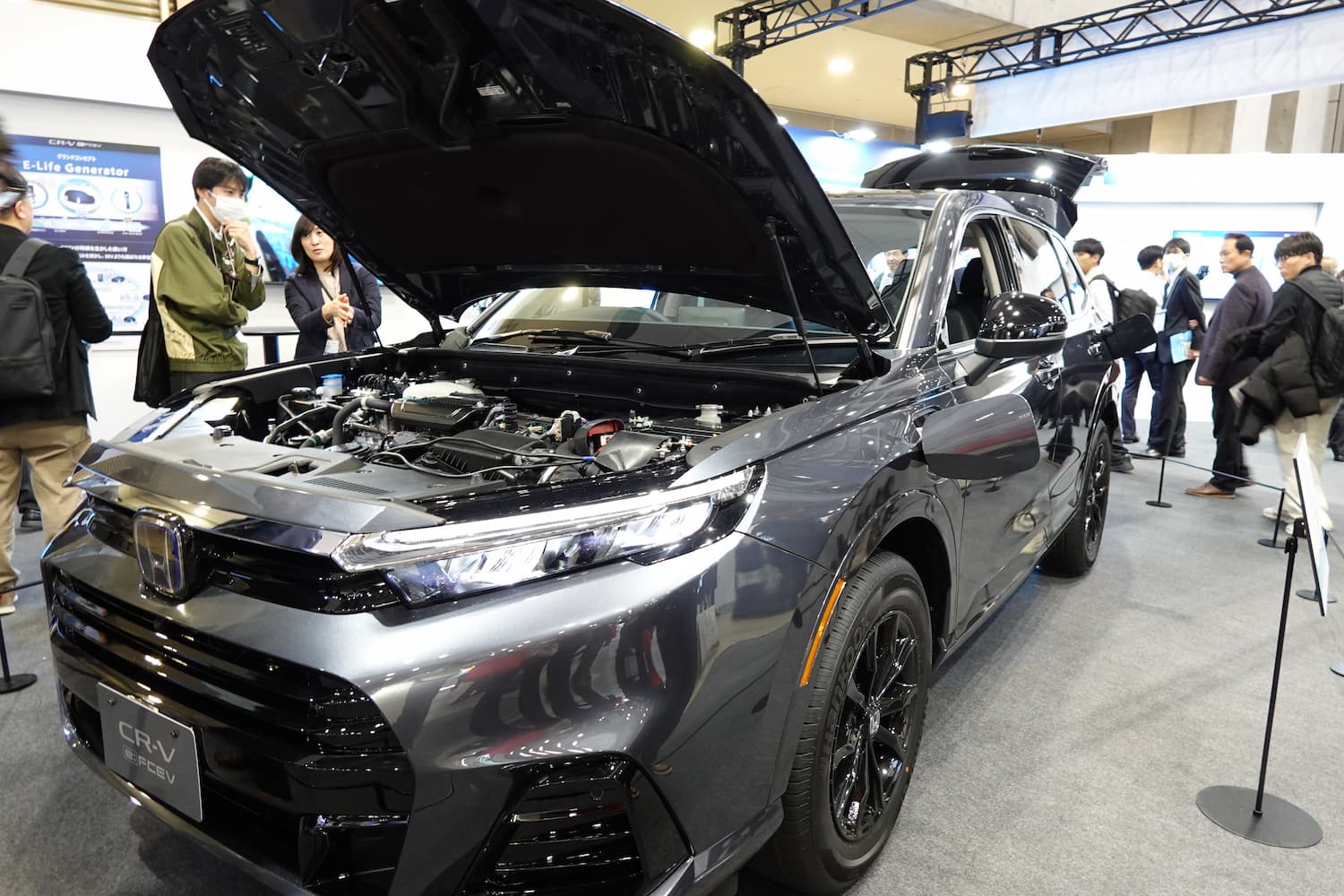
Honda's debut of its first hydrogen fuel cell electric SUV attracts many visitors. (Photo: Nana Chen)
JERA showcased its Digital Power Plant (DPP) package and the ammonia co-firing trial expected to begin this spring at the Hekinan Thermal Power Plant, where 20% of the fuel will be replaced with ammonia, as part of the company's 2050 net zero goal.
The DPP package introduces artificial intelligence (AI) into on-site equipment to optimize power plant operations and enhance safety risk management, thus facilitating the transition of power plants.
Currently, this product is only available in Japan and plans are underway to export it to other markets.

JERA presents the DPP package incorporating AI. (Photo: Hsu Tsu-lin)
This year, more than a dozen Taiwanese companies participated in the expo, including Shihlin Electric, HDRE, TPSC, and Motech.
TPSC presented "Windows ZERO," self-powered IoT devices, and perovskite solar modules at the exhibition.
The Taiwan section was specially arranged by the Taiwan External Trade Development Council (TAITRA), said Wang Yong-ning (王永寧), commissioner of the Industry Marketing Department at TAITRA, adding that this marks the first return of Taiwanese companies to WSEW since the COVID-19 pandemic.
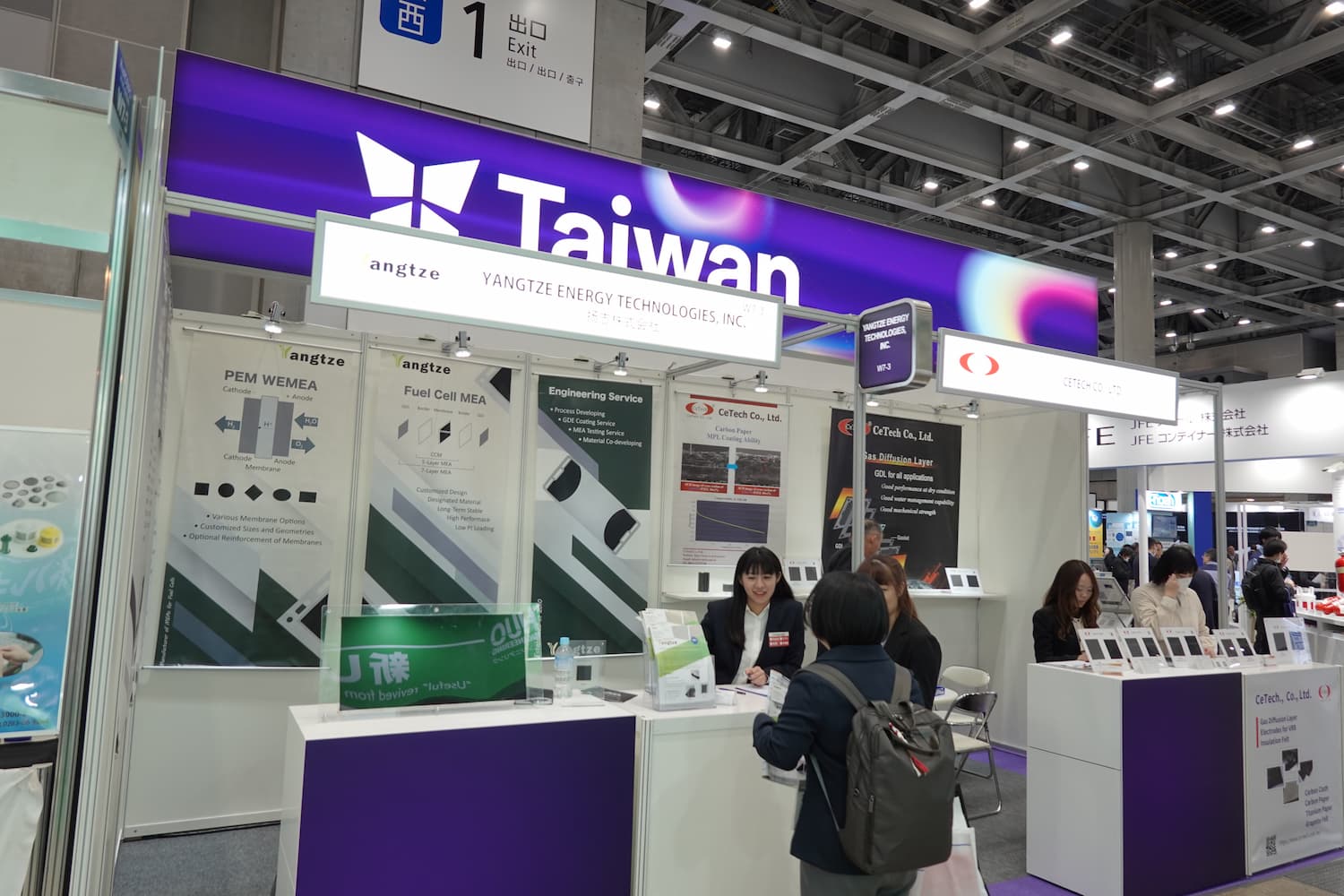
TAITRA brings more than ten companies to WSEW this year. (Photo: Hsu Tsu-lin)
200 forums foster cross-sector dialogue
This year's WSEW features 200 forums. Speakers on the first day includes officials from the Ministry of Economy, Trade and Industry (METI) and the Tokyo Metropolitan Government, as well as leaders from companies such as JERA, Honda, and Ballard Power Systems, covering topics such as hydrogen energy, zero-emission thermal power generation, and battery energy storage.
Speakers at the forums over the next two days will include representatives from Hitachi, Mitsubishi Heavy Industries, Siemens Gamesa, as well as Shinjiro Koizum, Japan's former Minister of the Environment and current member of the House of Representatives.
The event demonstrates Japan's ongoing commitment to renewable energy innovation and reinforces the country's strategy for diversifying energy sources, particularly by expanding its investment in hydrogen.
Japan plans to invest 15 trillion yen in the public and private sectors within the next 15 years and establish an integrated commercial supply chain by 2030.
Japan's first sovereign green bond issuance targets 20 trillion yen over next decade
In mid-February this year, the Japanese government issued GX bonds, the world's first sovereign climate bonds, to facilitate the decarbonization and growth of Japan's industries.
The government plans to issue a total of 20 trillion yen for the next decade in the hope of stimulating investment, pushing the total decarbonization investment to over 150 trillion yen within a decade, said METI’s official Tomohiko Adachi on the first day of the event.
It is the government's hope to finance emerging technologies, such as batteries and advanced chips, that contribute to long-term carbon reduction through GX bonds, he said.
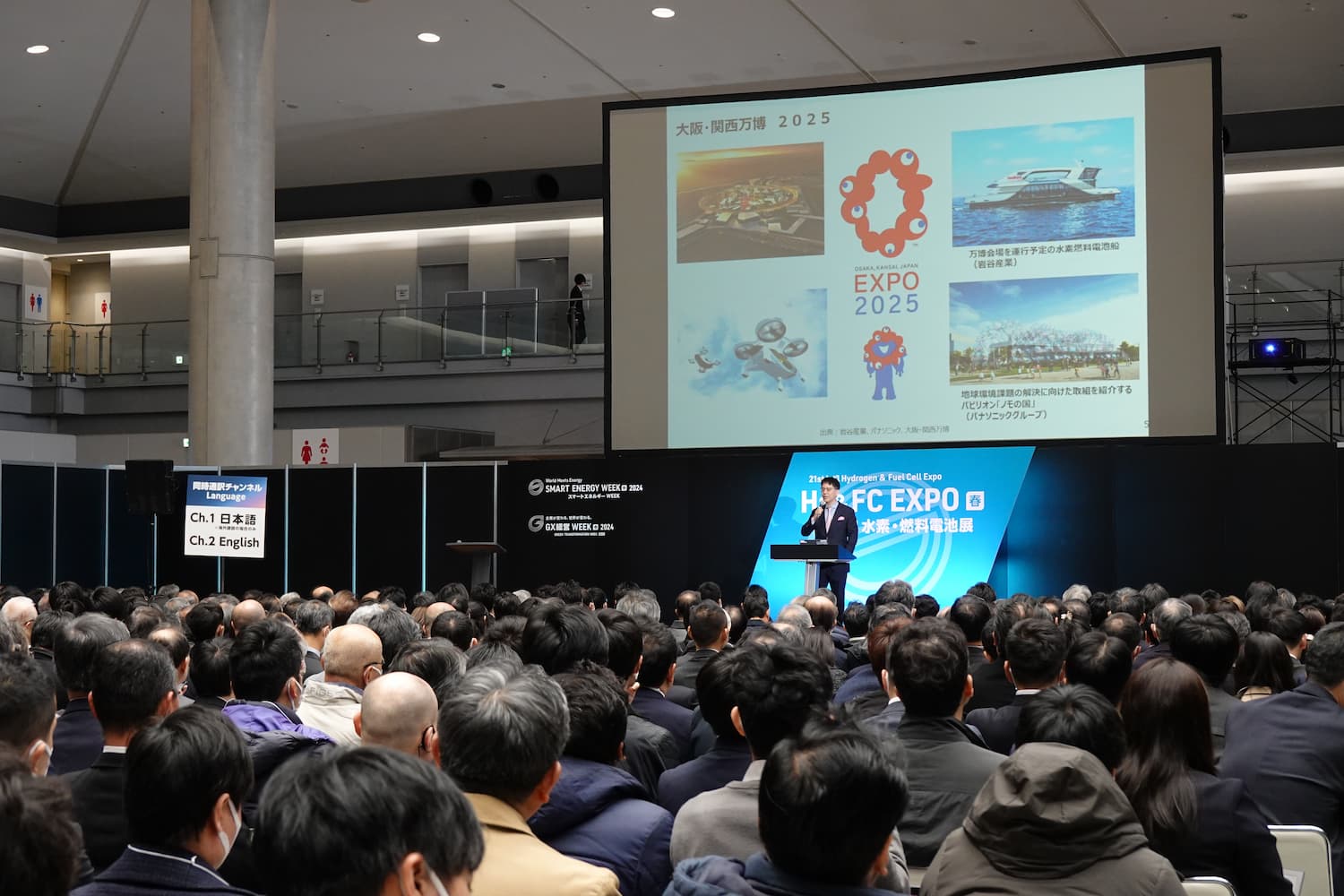
Tomohiko Adachi discusses Japan's decarbonization investment plans for the next decade. (Photo: Hsu Tsu-lin)
As Japan's largest power producer, JERA aims to achieve a global renewable energy capacity of 5 GW by 2025 and play a major role in the hydrogen and ammonia supply chain, said Tetsuya Watabe, JERA's vice president.
JERA has developed three major pathways to achieve its 2050 net zero goal, namely the development of renewable energy and zero-emission thermal power generation, energy transition pathway planning for various countries, and “Smart Transition,” he told a forum on "Prospects for Zero-Emission Thermal Power Generation."
Recently, the company has announced its cooperation with Indonesia's PLN EPI to provide advice on Indonesia's overall energy transition.
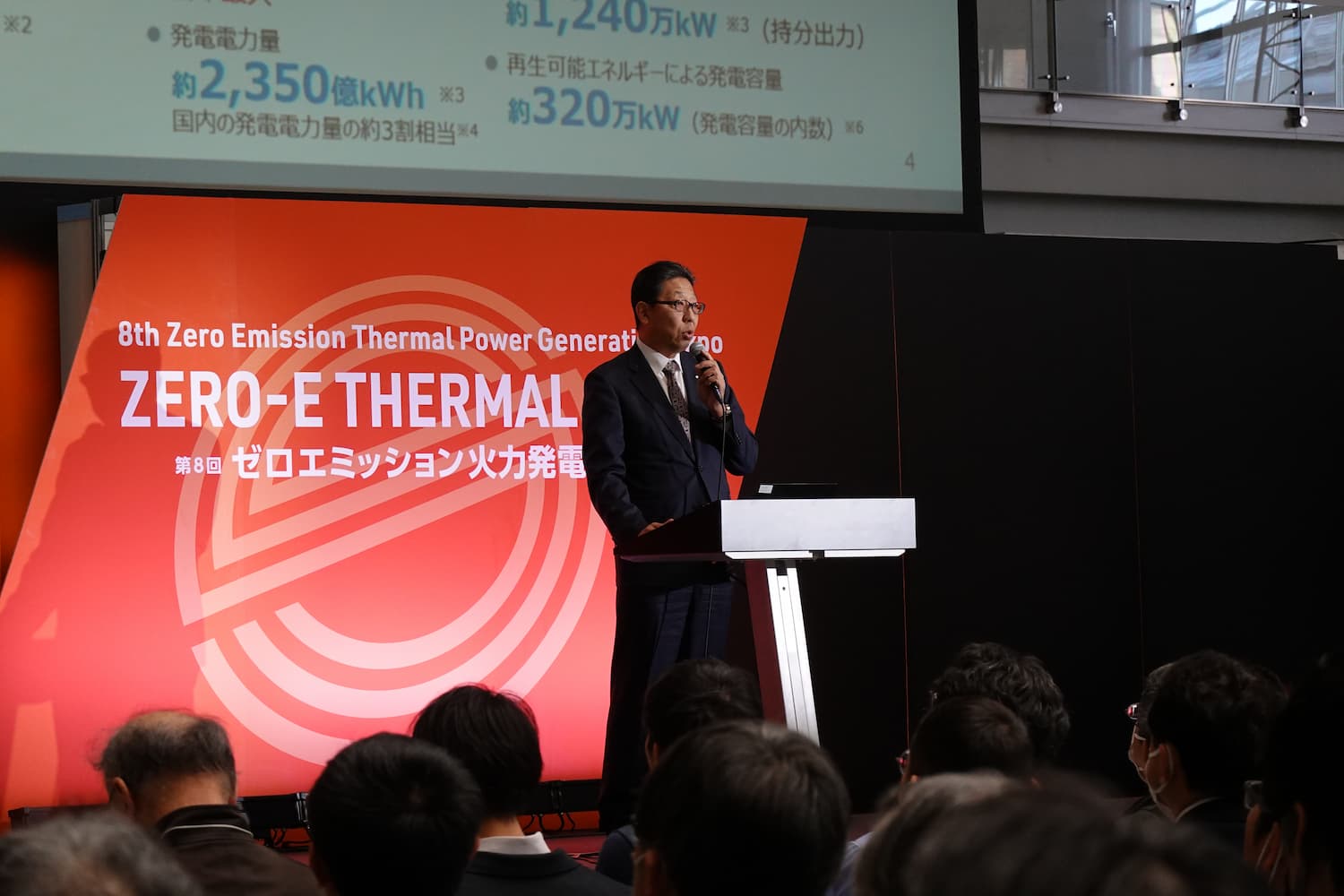
Tetsuya Watabe shares JERA's global deployment at the "Prospects for Zero-Emission Thermal Power Generation" forum. (Photo: Hsu Tsu-lin)









